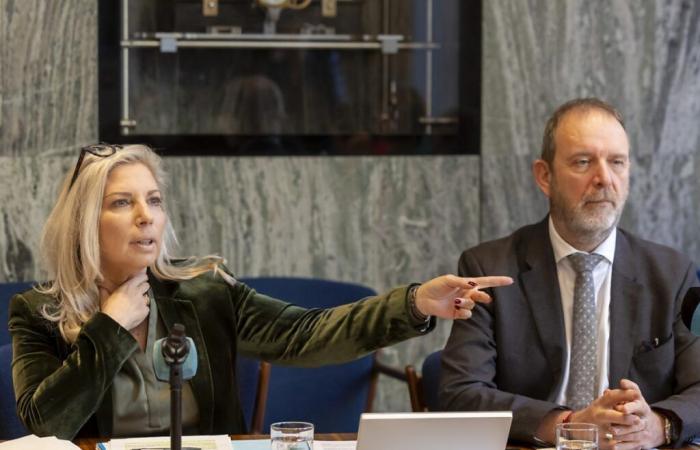Keystone-SDA
The Geneva Council of State is distressed by the way in which the Court of Auditors produced its report on the allocation of mandates revealed on Monday. The president of the executive, Nathalie Fontanet, denounced a biased report, with tendentious vocabulary.
This content was published on
December 16, 2024 – 3:04 p.m.
(Keystone-ATS) “This report, marred by gaps and approximations, with a dubious approach and tendentious vocabulary, raises unacceptable suspicion,” indicated the President of the Council of State. She criticizes the Court of Auditors for wanting to “obviously worsen the situation and the perception that the people of Geneva would have of it”.
The Council of State recognizes that the purchasing system can be improved. He also notes that the administration has already launched a project aimed at redefining the departments’ cross-functional markets and better coordinating them. An internal audit recommended continuing this project. This is why four of the recommendations of the Court of Auditors are refused: they are redundant, according to Ms Fontanet.
“Heavy bureaucracy”
Another rejected recommendation consisted, according to the Council of State, of putting in place “controllers to control the people responsible for control”. The executive does not want a heavy bureaucracy which goes against the principles of autonomy and agility within the State.
The method applied by the Court of Auditors is strongly criticized by the Council of State. The magistrates chose to rely on a non-representative sample of 84 orders and 26 suppliers, out of a total of 36,000 annual orders, or 0.25% of all State purchases. These 84 orders were not drawn at random, but deliberately chosen for their degree of risk.
Under these conditions, it is impossible to draw generalities applicable to all State purchases, according to Ms. Fontanet. The President of the Council of State believes that the conclusions of the report suggest that the entire management is problematic, which is not the case, she assures.
A legacy
Beyond the substance, the opposition of the executive also concerns the form of the report which uses tendentious vocabulary with terms such as “corruption” or “fraud” even though the Court has not precisely noted any fraud, nor financial damage. “If we had accepted the report, we accepted the suspicion and the indirect accusations,” said Thierry Apothéloz, vice-president of the Council of State.
During this unprecedented press conference, Nathalie Fontanet clarified that according to her, the magistrate who wrote the report “wanted to leave a legacy”. He allegedly told him: “I’m firing my last cartridges.” This report is the last published by the magistrates whose mandate ends at the end of the year.






